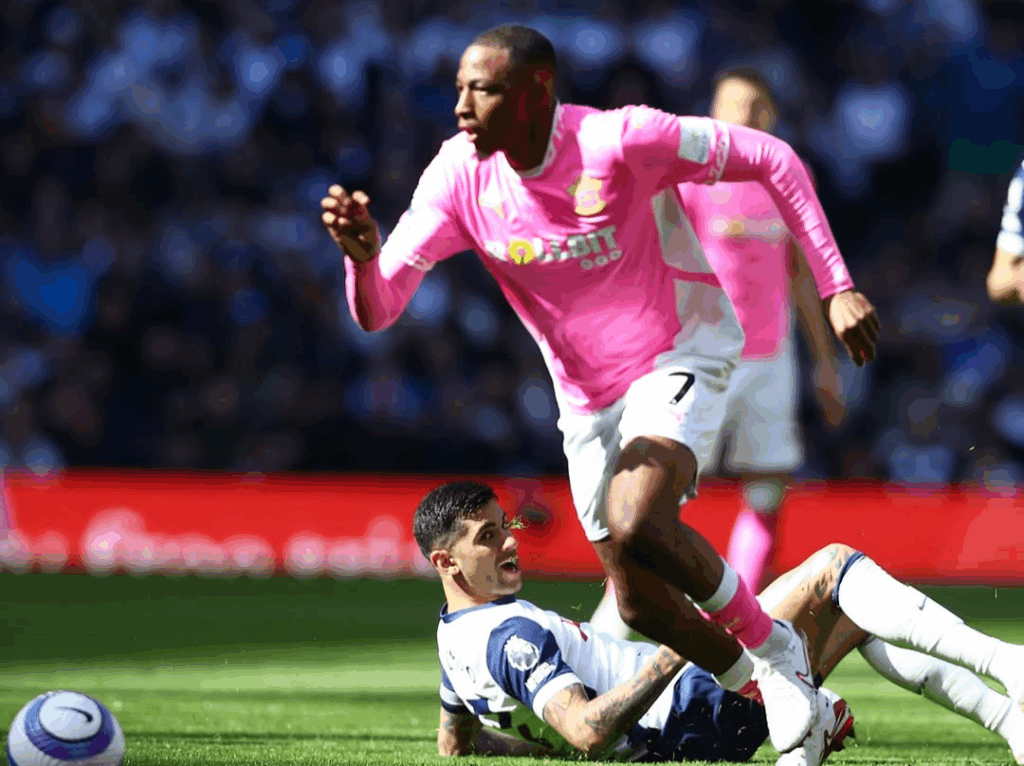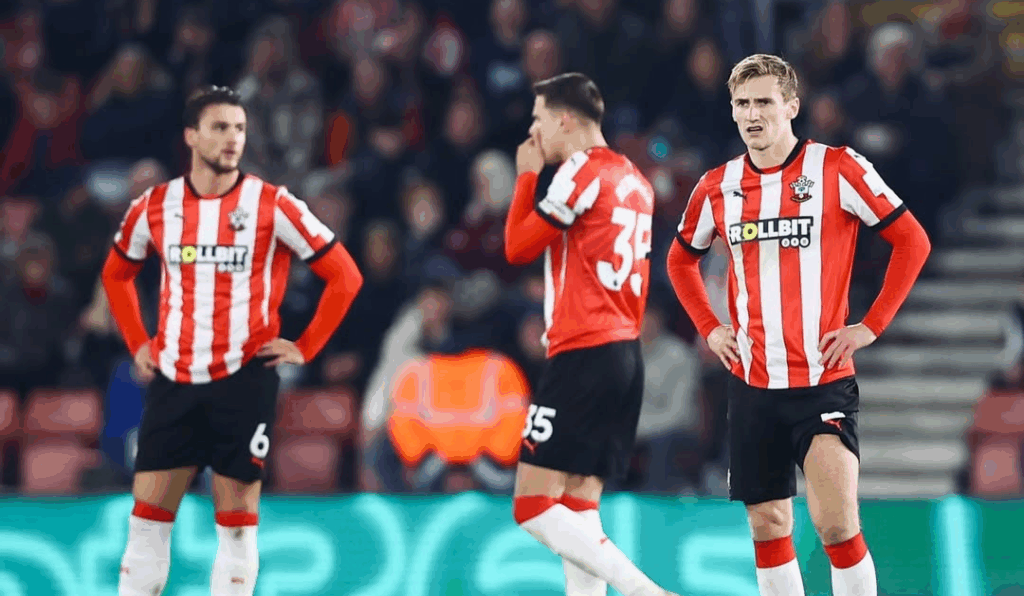With Southampton the earliest side to be relegated in Premier League history, many thought that dreaded Derby deadlock would follow. However, after a shock point at home to league giants Manchester City, the Saints broke the barrier to sit on 12 points with 2 games remaining.

Upon a 3-1 defeat away to Spurs, Southampton succumbed to relegation and their 25th defeat of the season. It was a day of unwanted records, with it not only being the fastest relegation the league has ever seen but also only the third time that a team has lost 25 of their first 31 fixtures in a top-flight campaign (the two predecessors being Sunderland in 2005/6 and more recently Sheffield United in 2020/21). Yet while some unwanted records have undoubtedly been set, some have narrowly been avoided.
After holding off City at St Marys the Saints avoided beating Watford’s tally of the most home defeats in a PL season (set in 2021/22 under the management of Roy Keane, when they too were relegated after losing 15/19 home games). In addition, this season also saw the Saints evaded having the longest winless streak (set by Derby in 2007 spanning 32 games). Records avoided however is hardly cause for celebration.

Southampton’s season can be described as nothing short of abysmal. Working through 3 different managers (including current interim Simon Rusk), they have been repeatedly exposed, outperformed and broken down by their opposition; both in the league and domestic cups.
A poor summer of lacklustre recruitment and selling of key players inevitably led to significant weaknesses emerging in the squad, however the club’s problems were never superficial. The damage ran deeper than quality and into the skeleton of the club. It ran from players into the management, into the board, and into the ownership.
But who counteracted this bad blood best?
Russell Martin:

After an incredibly successful season in the Championship leading to their promotion, Martin was a face of hope at the club after bleak season upon bleak season prior to relegation in 2023. Averaging at 1.92 points per game and with a league win percentage of 57.14%, his time spent at the club in the EFL can only be discussed in a positive light. Despite this, upon their comeback campaign starting it quickly became evident that the man who led the club with such confidence would crumble under the pressure of the top flight.
Many stood by his management, retaining faith in his system however after an incredibly poor start to the season, and Martin showing a distinct lack of flexibility when a change of approach was evidently needed, him and the club parted ways. With a rounded win percentage of 7% (1/14) and predicted points per game of 0.36 the picture painted of his reign in the Premier League was not one of success nor style.

What he did for the club in the Championship will never be neglected, however he failed to bring out the best of an already struggling squad.
Ivan Jurić:

The appointment of Jurić was one designed to alleviate some of the pressure. A new face symbolised a new approach, a hopeful change for the better that fans had been longing for, however once again the club appeared to be led by a manager rigid in his approach. In a league that is constantly developing, with results not going your way, and players visibly not good enough to play the role that’s being asked of them, managers must adapt. Yet again having only a 7% win rate (1/14) and sitting on a points tally lower than Martin’s (4), Jurić’s time in charge was short lived but long enough to administer the kiss of death upon the hope of staying up. Upon relegation, Jurić and the club parted ways with Simon Rusk taking the lead as interim to the end of the season.
After possibly one of the most unsuccessful terms a manager has had at the club, many questioned Sport Republic’s ambition and vision for the club, with his appointment never really making much sense.
Simon Rusk:

After only 6 games, Rusk has accumulated 25% of Southampton’s point tally (3) in less than half the number of performances. While the football he has been playing wouldn’t be describes as attractive, it has been indisputably more effective than both previous managers. Instead of employing his own philosophy upon the players, he works to enable them to play to their advantage, with the performance vs Manchester City being a prime example of this. Recognising that should they go to-to-toe with the heavyweights they would lose, Rusk took a patient, committed and defensive approach that led to the strongest team performance the Saints have displayed this season. With City having 26 shots compared to Southampton’s 2, and maintaning 72% possession, holding them to a draw was testament to Rusk’s game plan and the mentality he has encouraged.
Conclusion:
No manager’s term this season can be deemed as successful, however the resilience and mentality displayed by the players last weekend speaks volumes in itself. This season may be over, but hope remains for a reconstruction over the summer and into the Championship, especially if Rusk can manage to find some more stray results in the final fixtures of the season.

There is an overwhelming sense of deja-vu when discussing what requires action this summer, yet fan tension with the leadership and ownership of the club is elevated – and understandably so. Having too great an ambition may have been the downfall of our managers, however the club’s greater lack of it has been the bigger catalyst in their downfall. As the next chapter begins to unfold, we await to see the narrative that will soon be written. Fans hold out hope for a strong summer and a quick return to the Premier League however this anticipation comes tinted with pessimism following what has been seen so far from Sport Republic.
Poppy Deabill